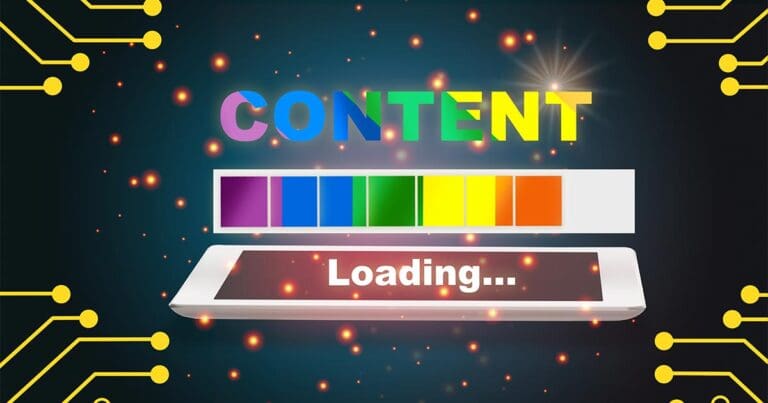Emotional Intelligence: The In-Demand Soft Skill to Hire For

When you go to make a hiring decision, you base it on several things, like past work experience, likability, culture fit, etc.
But we know that it often comes down to intellect.
Sure likability is important, but Tech experts, specifically, must have the smarts to get the job done well.
But by valuing intellect over everything we miss the true mark of a successful candidate: emotional intelligence.
What is emotional intelligence?
Emotional intelligence, also referred to as EI or EQ (emotional quotient), is the ability to recognize and understand your emotions and the emotions of others, and to use this awareness to guide your thinking and actions in both personal and professional settings.
EI is a soft skill that employers should look for when hiring due to its many benefits like effective communication, collaboration, and leadership.
Lately, it’s been a buzzword everyone likes to throw around, including quasi-counselors on shows like The Bachelor. But it’s often an overused yet undervalued word when it comes to hiring.
Emotional intelligence first picked up steam in the 90s with Daniel Goleman’s bestseller, “Emotional Intelligence.” The book outlined the five core constructs of EI, which are:
- Self-awareness
- Self-regulation
- Social Skills
- Empathy
- Motivation
Why is emotional intelligence important in the workplace?
Emotional intelligence is becoming more important in the workplace as the demand for emotionally intelligent employees grows due to benefits like higher performance, the ability to work well under pressure, and better active listening skills.
Growing demand for emotionally intelligent employees
Considering the findings in the World Economic Forum’s Future of Jobs Report that emotional intelligence will be one of the top 10 in-demand job skills, it’s critical that hiring managers and C-level roles understand why hiring for this skill is critical to a successful business.
As more of these hiring experts learn about EI, the skill set has started popping up on more job postings as one of the primary job requirements.
Emotional intelligence outranks IQ in employee performance
Studies throughout the past several years have noted EI as a core skill set of 90% of superstar performers in various industries, not high IQ like previously believed.
In comparison, high IQ is only present in 70% of top performers. So what do those with EQ, as some call it, do better? A lot actually.
Emotionally intelligent employees are better under pressure
Employees with high levels of emotional intelligence handle pressure and stress better by being aware of any changes in their emotions as they happen and implementing healthy coping mechanisms to relieve any stress or negative emotions to remain in control.
They know when to take a step back rather than waiting until they reach their breaking point.
Their empathetic nature allows them to collaborate effectively with and react accordingly to others from a diverse range of cultures and backgrounds, which reduces the occurrence of internal bickering or office politics.
Employees with emotional intelligence have better active listening skills
These individuals also tend to have excellent listening skills and pick up on body language allowing them additional insight into conversations and the ability to easily adjust their behavior or work as recommended.
They also know when to say no in terms of commitment and their ego for the betterment of the business.
Most of us get the general idea of emotional intelligence. But recognizing this in the hiring process is a serious challenge.
Don’t stress though; we’ve got you covered.
How to spot emotional intelligence in an interview
Before you get ahead of yourself and think identifying true signs of emotional intelligence in an interview will be impossible since candidates always talk themselves up, consider the following tips. Trust us. You’ll be surprised at what you missed when you weren’t focused on noticing genuine EQ.
Leverage behavioral event interviewing
Behavioral event interviewing begins by avoiding commonly asked interview questions that candidates prep scripted answers for beforehand.
Instead, make the interview informal, conversational, and warm at the start. This creates a more comfortable and friendly atmosphere that encourages honesty.
Then delve into specific behavior-based questions — One positive and one negative experience-based question. After the initial basics, ask for more details.
Looking into both these experiences in-depth will give you insight into their self-awareness levels, ability to empathize, self-regulation capabilities, and motives.
Ask for various perspectives on the experiences of those involved to get an idea of their emotional awareness and maturity.
Tap into emotionally intelligent employees
It’s likely many of the employees in your business have high emotional intelligence, which was probably one of the reasons they were hired whether it was ever actually evaluated or put into words.
Use these resources! Ask them for referrals to friends, colleagues, and connections that would fit well with your business that reflect the same emotional intelligence as the employee.
They will feel encouraged that the impact of their EI didn’t go unnoticed and will appreciate the opportunity to help identify the individuals, teams, and departments they’ll work best with.
Don’t rely on emotional intelligence tests
This may seem like the easy answer, but results are often far from accurate with these types of tests.
They evaluate exactly what they say they do, personality, which is not the same as emotional intelligence.
A face-to-face interview is the best way to identify EQ or the lack thereof.
Prioritizing emotional intelligence in the workplace
Emotional intelligence is a driver of innovation, problem-solving, healthy business cultures, and effective collaboration.
Organizations that prioritize high EQ in their employees and executives include major Tech innovators like Google and Amazon. Clearly, hiring for this skill set is paying off big for both of them.
If you lack the emotionally intelligent IT, Tech, or Digital Marketing experts you need to improve the solutions your business creates, contact Mondo today. We have the highly specialized professionals you need with the EQ your business is missing.
Looking to hire top-tier Tech, Digital Marketing, or Creative Talent? We can help.
Every year, Mondo helps to fill over 2,000 open positions nationwide.
More articles about hiring and industry trends:
- How to Create an Inclusive Workplace to Empower Women in Tech
- Returnship Programs: Reentering the Workforce After an Employment Gap
- The Top 5 Reasons We Need More Women in Tech
- Corporate Social Responsibility: What It Is, Why It Matters & How It Impacts Business
- Hiring and Recruitment Obstacles in 2023 & How to Overcome Them
- How Leadership Development Improves Employee Retention
- Reasons New Hires Fail: Is Leadership to Blame?
- 5 In-Demand Developer Roles Your Tech Team Needs
- Why Take-Home Assignments are the Biggest Mistake for Hiring Managers



